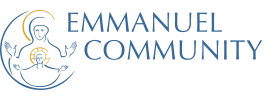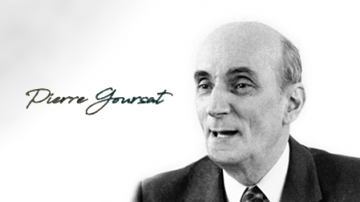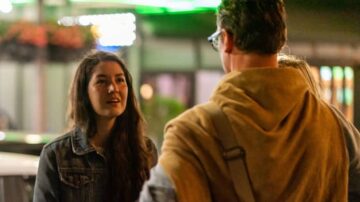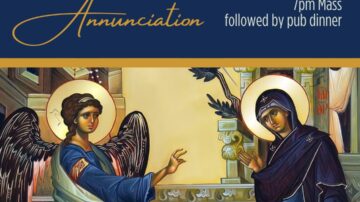« What do I fear the most:
to die or to live without God? »
How do NGO volunteers manage the COVID-19 crisis during their mission? Anne-Gaelle, consecrated sister in the Emmanuel Community, is currently on mission in Madagascar with Fidesco as a doctor in a dispensary.
Let’s discover her testimony.
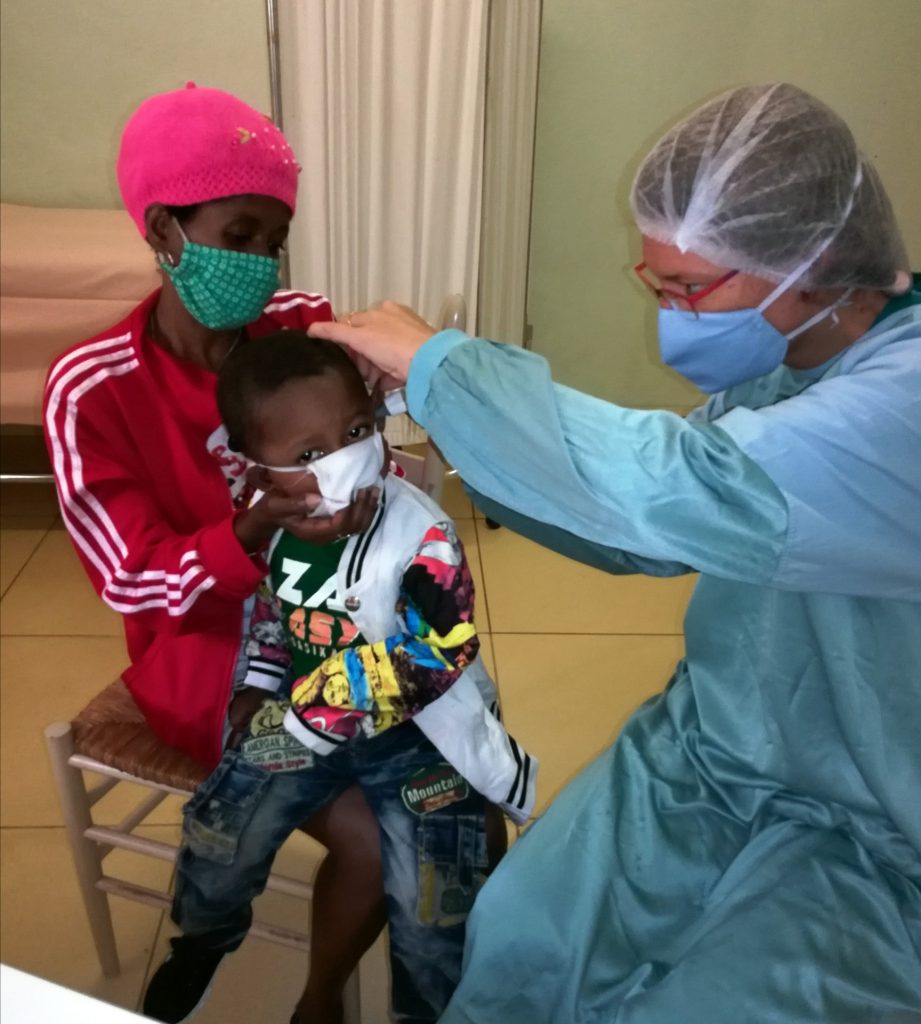
Your mission is in the medical field. What are the principal challenges in this field while being sent to Madagascar?
In Madagascar, the challenges in the medical field are enormous. To start, the basic hygiene requirements: to bath, to wash one`s hands before eating or cooking, to wash wounds even the small ones with soap, to brush teeth,… A majority of the population simply does not have access to paid healthcare because of poor finances. A lot of families still sort after traditional medicine which brings them more harm thus delaying proper medical care. Finally, self-medication has negative effects: poor families buy these medicines in the street, without proper medical council and often the molecules are of bad quality.
What would be the impact of the pandemic in this country, taking into account the current infrastructure and living conditions?
We do not really know what to expect from this pandemic. However the promiscuity, the absence of basic hygiene, chronic malnourishment and the absence of proper sanitary structures (there is no other reanimation center outside the capital city of Antananarivo) makes us worry for the worst in terms of sanitation. To top it all, many families live day-to-day, without any financial savings nor any food reserves: a strict containment would quickly starve the poorest of the poor, with significant safety risks.
In your place of mission, how do you organise yourself to face this sanitary crisis? What are the measures put into place?
In the dispensary where I work, many important measures were put into place since the announcement of the first cases in the country. We all wear a cap, a mask and a washable gown. We lack protective materiel, but since the first days of the outbreak, the nurses made cloth masks for all the workforce that we wash every evening at home (certainly not based on international guidelines, but it’s a start)
In 2days, our reception area was reorganised. A small tent was installed outside. All the patients that arrive are asked to wash their hands, and to put on a hand-made mask that are made on the premises (while we wait to better materiel). Then in the outdoors, we take the temperature of all the patients and do a triage based on the reason for consultation: those that present respiratory difficulties are prioritized towards one of our doctor’s onsite.
For the moment, we work on rotation, to not work every day, thus gaining strength before the physical strain the epidemic represents for us in the city.
In the heart of this crisis, what acts of solidarity do you witness? How do you see the work of God, in spite of the poverty of resources facing the menace of the pandemic? What nourishes your hope?
Since last week, a solidary project came to light in the city to make 100 000 masks to be distributed freely to all locals. Funds are being collected in Europe via an association, permitting employment of local seamstresses, who makes cloth masks according to European norms found on the internet. These masks are now distributed at various distribution points in the city (one of which is our dispensary) where we grab the opportunity to teach «physical distancing» to the population. It’s a beautiful solidarity project which sustains the local economy and participates in the safety of its habitants.
Outside, I see other beautiful actions of solidarity. I’m acquainted with a Malagasy of poor revenue, who received a bonus from her employer right before we entered containment to enable her to stock up on provisions. With this bonus, instead she bought soap for all her neighbours who do not have the means to get one. I’m touched and amazed to see that often it is people with little resources who think of others that are poorer than themselves. Besides, mutual aid is already present in little things: public transport is suspended, so to commute to and from work, an organisation is setup every day to pick up the employees of the dispensary by car, either by a rare colleague who has a means of transport, or by the driver of the dispensary.
A friendly atmosphere guaranteed!
The masses were cancelled all of a sudden. To support the faith of the residents, the local radio transmits every day the mass, as well as encouragements and messages from the bishop. The Malagasy bishops initiated a nation-wide novena with daily rosary that was very much followed here. The Malagasy`s have a huge faith in God, that they share all the more in period of uncertainty.
What do you learn with your contact with the poorest of the poor during this trial?
The Malagasy`s have a different approach to life and death compared to the Occident. Death is omnipresent here, every week either a brother, a cousin or an aunt passes away young. So yes, the Malagasy`s are scared of Covid-19 which can bring death but their worries are much more significant (for example better not do something that would banish you from being buried in the family tomb, which for them is the worst thing that could happen). Which brings me to question myself: What do I fear the most: to die or to live without the Lord? To be far away from my loved ones during this period of uncertainty; or to not be with those who need me, here, next to me? In spite of my fears, amongst them, I rejoice that I can continue to live my mission in the medical field, hoping that this is a sign that God is present during this tribulation, and he continues to look after us
The Malagasy`s have a wonderful capacity to live «day-to-day» without projecting too much into the future, which is even more unimaginable during these days of uncertainty : this gives them an admirable force, something that I’m learning from them.
Nevertheless, the resilience of the Malagasy`s is edifying: in all circumstances, I see them moving forward courageously. They are very resourceful people and nothing stops them. This is a life lesson for me.
How important is the support of donators and sponsors for you?
I’m fortunate to have donators and sponsors who send me messages of encouragement and also asking for updates. This touches me even more knowing that they worry as well, their days are full especially when the children are at home, etc. It’s an extraordinary support, I would even say indispensable for me to continue my mission here.
